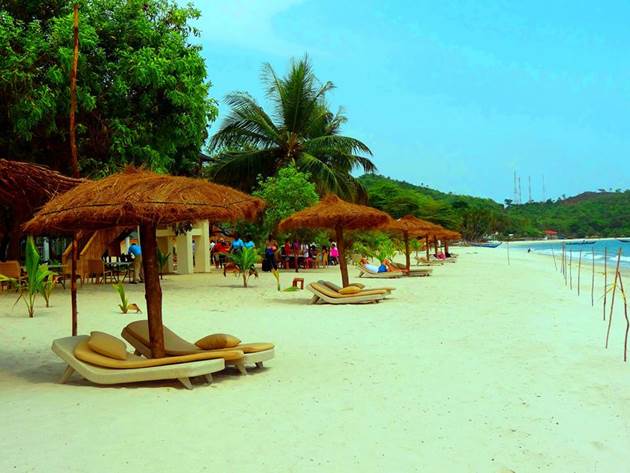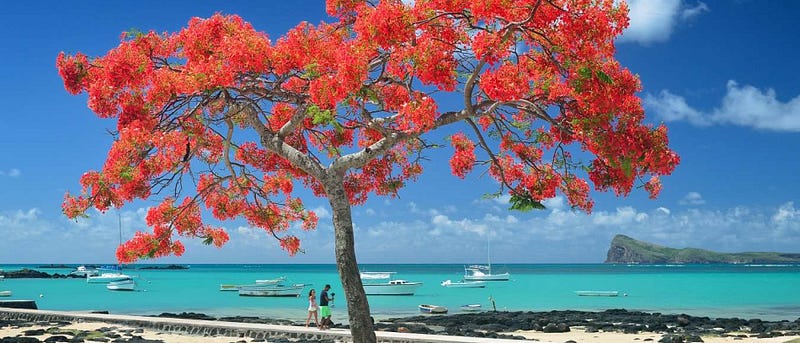Tourism Grows 4% in 2021 but Remains Far Below Pre-Pandemic Levels
UNWTO reports a 4% rise in international tourist arrivals in 2021; however, 2021 was another challenging year: arrivals still 72% down on pre-pandemic levels; recovery needs stronger coordination and increased vaccination rates.
Global tourism experienced a 4% upturn in 2021, compared to 2020 (415 million versus 400 million). However, international tourist arrivals (overnight visitors) were still 72% below the pre-pandemic year of 2019, according to preliminary estimates by UNWTO. This follows on from 2020, the worst year on record for tourism, when international arrivals decreased by 73%.

The first 2022 issue of the UNWTO World Tourism Barometer indicates that rising rates of vaccination, combined with easing of travel restrictions due to increased cross-border coordination and protocols, have all helped release pent up demand. International tourism rebounded moderately during the second half of 2021, with international arrivals down 62% in both the third and fourth quarters compared to pre-pandemic levels. According to limited data, international arrivals in December were 65% below 2019 levels. The full impact of the Omicron variant and surge in COVID-19 cases is yet to be seen.
Slow and uneven recovery
The pace of recovery remains slow and uneven across world regions due to varying degrees of mobility restrictions, vaccination rates and traveler confidence. Europe and the Americas recorded the strongest results in 2021 compared to 2020 (+19% and +17% respectively), but still both 63% below pre-pandemic levels.
Read also Fintech Farm Plans To Launch Neobank In Nigeria Within 2 Years
By subregion, the Caribbean saw the best performance (+63% above 2020, though 37% below 2019), with some destinations coming close to, or exceeding pre-pandemic levels. Southern Mediterranean Europe (+57%) and Central America (+54%) also enjoyed a significant rebound but remain 54% and 56% down on 2019 levels respectively. North America (+17%) and Central Eastern Europe (+18%) also climbed above 2020 levels.
Meanwhile, Africa saw a 12% increase in arrivals in 2021 compared to 2020, though this is still 74% below 2019. In the Middle East arrivals declined 24% compared to 2020 and 79% over 2019. In Asia and the Pacific arrivals were still 65% below 2020 levels and 94% when compared to pre-pandemic values as many destinations remained closed to non-essential travel.
Increased tourism spending
The economic contribution of tourism in 2021 (measured in tourism direct gross domestic product) is estimated at US$1.9 trillion, above the US$1.6 trillion in 2020, but still well below the pre-pandemic value of US$ 3.5 trillion. Export revenues from international tourism could exceed US$700 billion in 2021, a small improvement over 2020 due to higher spending per trip, but less than half the US$1.7 trillion recorded in 2019.
Average receipts per arrival are estimated to reach US$1,500 in 2021, up from US$1,300 in 2020. This is due to large pent-up savings and longer lengths of stay, as well as higher transport and accommodation prices. France and Belgium reported comparatively smaller declines in tourism expenditure with -37% and -28%, respectively over 2019. Saudi Arabia (-27%) and Qatar (-2%) also posted somewhat better results in 2021.
Outlook for 2022
According to the latest UNWTO Panel of Experts, most tourism professionals (61%) see better prospects for 2022. While 58% expect a rebound in 2022, mostly during the third quarter, an42% vs point to a potential rebound only in 2023. A majority of experts (64%) now expect international arrivals to return to 2019 levels only in 2024 or later, up from 45% in the September survey.
Read also : Revolutionalising Legal Practice With Technology
The UNWTO Confidence Index shows a slight decline in January-April 2022. A rapid and more widespread vaccination roll-out, followed by a major lifting of travel restrictions, and more coordination and clearer information on travel protocols, are the main factors identified by experts for the effective recovery of international tourism. UNWTO scenarios indicate that international tourist arrivals could grow by 30% to 78% as compared to 2021, However, this is still 50% to 63% below pre-pandemic levels.
The recent rise in COVID-19 cases and the Omicron variant are set to disrupt the recovery and affect confidence through early 2022 as some countries reintroduce travel bans and restrictions for certain markets. At the same time, the vaccination roll-out remains uneven and many destinations still have their borders completely closed, mostly in Asia and the Pacific. A challenging economic environment could put additional pressure on the effective recovery of international tourism, with the surge in oil prices, increase in inflation, potential rise in interest rates, high debt volumes and the continued disruption in supply chains. However, the ongoing tourism recovery in many markets, mostly in Europe and the Americas, coupled with the widespread vaccination rollout and a major coordinated lifting of travel restrictions, could help to restore consumer confidence and accelerate the recovery of international tourism in 2022.
Read also Tiger Global Turns To Ghana As US Investors Back Fintech Startup Float In $17m Seed Round
While international tourism bounces back, domestic tourism continues to drive recovery of the sector in an increasing number of destinations, particularly those with large domestic markets. According to experts, domestic tourism and travel close to home, as well as open-air activities, nature-based products and rural tourism are among the major travel trends that will continue shaping tourism in 2022.
Kelechi Deca

Kelechi Deca has over two decades of media experience, he has traveled to over 77 countries reporting on multilateral development institutions, international business, trade, travels, culture, and diplomacy. He is also a petrol head with in-depth knowledge of automobiles and the auto industry












